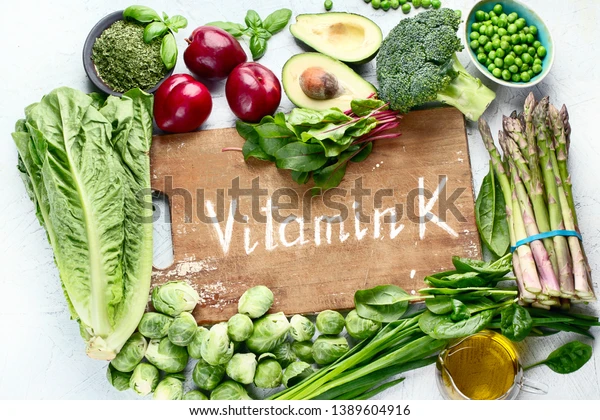Introduction:
Vitamin K is a fat-soluble vitamin that comes in two forms. The main type is called phylloquinone, found in green leafy vegetables like collard greens, kale, and spinach. The other type, menaquinones, is found in some animal foods and fermented foods. Menaquinones can also be produced by bacteria in the human body.
Vitamin K helps to make various proteins that are needed for blood clotting and the building of bones. Prothrombin is a vitamin K-dependent protein directly involved with blood clotting. Osteocalcin is another protein that requires vitamin K to produce healthy bone tissue.
Vitamin K is found throughout the body including the liver, brain, heart, pancreas, and bone. It is broken down very quickly and excreted in urine or stool. Because of this, it rarely reaches toxic levels in the body even with high intakes, as may sometimes occur with other fat-soluble vitamins.
The recommended amount:
The (Adequate intake) AI amount is estimated to ensure nutritional adequacy. For adults 19 years and older, the AI for vitamin K is 120 micrograms (mcg) daily for men and 90 mcg for women and for those who are pregnant or lactating.
Vitamin K and Health:
Adequate amounts of Vitamin K are required for:
- Blood clotting
- Bone health
- Heart disease
Food Sources
- Phylloquinone
- Green leafy vegetables including collard and turnip greens, kale, spinach, broccoli, Brussel sprouts, cabbage, lettuces
- Soybean and canola oil
- Salad dressings made with soybean or canola oil
- Fortified meal replacement shakes
- Menaquinones
- Natto (fermented soybeans)
- Smaller amounts in meat, cheese, and eggs
Signs of Deficiency
Vitamin K deficiency in adults is rare, but may occur in people taking medications that block vitamin K metabolism such as antibiotics, or in those with conditions that cause malabsorption of food and nutrients. A deficiency is also possible in newborn infants because vitamin K does not cross the placenta, and breast milk contains a low amount.
Deficiency can manifest as:
- A longer time for blood to clot or a prolonged prothrombin time (as measured in a physician’s office)
- Bleeding
- Hemorrhaging
- Osteopenia or osteoporosis
Take home message:
Vitamin K is fat-soluble, it is best to eat vitamin K foods with some fat to improve absorption. So, drizzle some olive oil or add diced avocado to your favorite leafy green salad! It is important to know that Vitamin K is an essential nutrient that helps your blood clot and your bones grow the way they should. It also may help prevent the bone disease osteoporosis and protect you against heart disease.
